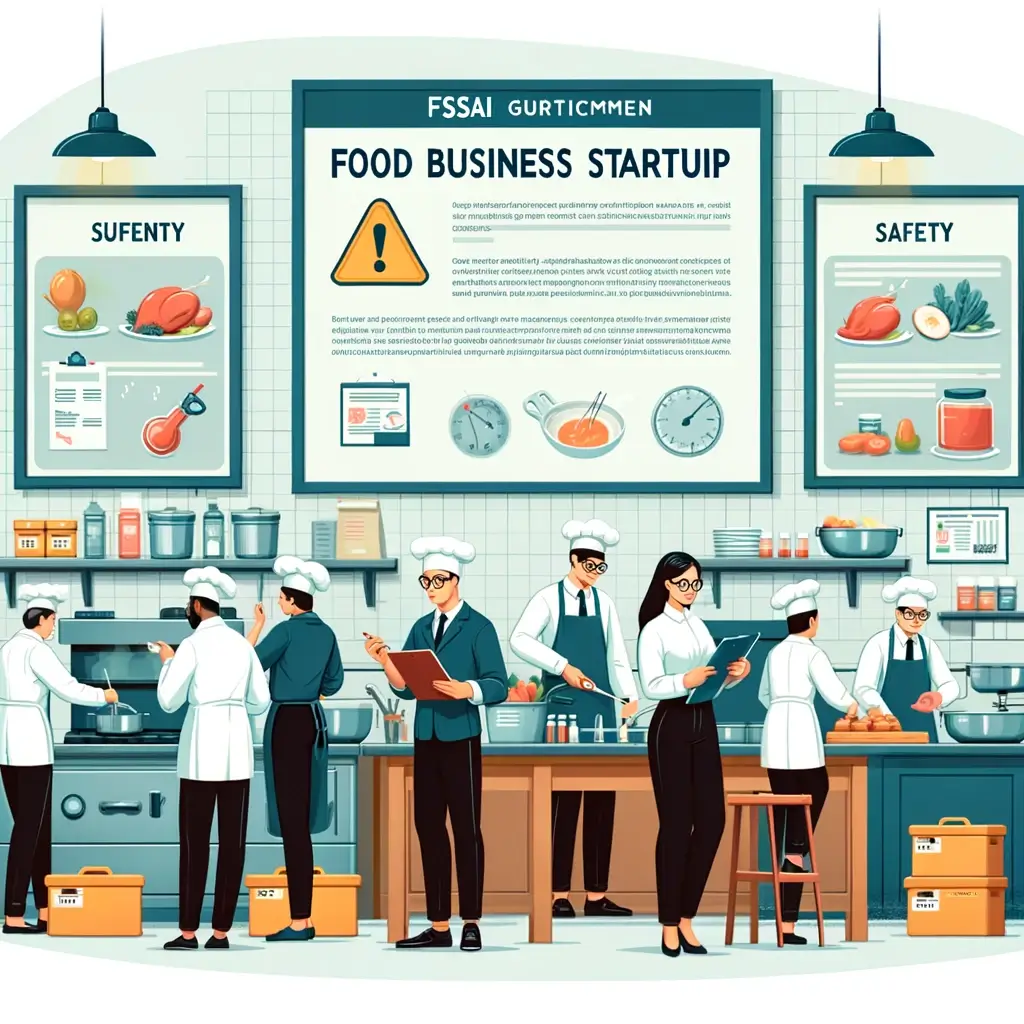
Starting a food business in India can be a rewarding venture, but it also comes with specific regulatory requirements that must be met to ensure safety and quality standards. One of the most crucial aspects of launching a food business is obtaining the appropriate licensing and adhering to the guidelines set forth by the Food Safety and Standards Authority of India (FSSAI). This article provides a comprehensive overview of the FSSAI guidelines for food business startups, including licensing requirements, safety standards, and best practices.
1. Understanding FSSAI and Its Role
FSSAI is the regulatory authority responsible for ensuring the safety and quality of food products in India. Its primary objective is to protect consumers' health and well-being by regulating food businesses and establishing science-based standards.
2. Types of FSSAI Licenses
- Basic FSSAI Registration: For petty food businesses with an annual turnover of up to Rs. 12 lakhs.
- State FSSAI License: For medium-sized food businesses with an annual turnover between Rs. 12 lakhs and Rs. 20 crores.
- Central FSSAI License: For large food businesses with an annual turnover exceeding Rs. 20 crores or for businesses operating in multiple states.
3. Eligibility Criteria for Licensing
- Basic FSSAI Registration: Suitable for small businesses like petty retailers, street vendors, and temporary stallholders.
- State FSSAI License: Ideal for businesses with moderate operations, such as mid-sized restaurants, manufacturers, and traders.
- Central FSSAI License: Required for larger enterprises, exporters, and businesses with large production capacities.
4. Application Process
- Form Submission: Submit the appropriate application form (Form A for Basic Registration, Form B for State/Central License) to the FSSAI.
- Documentation: Provide required documents, including identity proof, address proof, food safety plan, and other relevant certifications.
- Processing Time: The application is typically processed within 30 days. If approved, a registration or license certificate is issued.
- Display of Certificate: Once obtained, prominently display the certificate at your business premises.
5. Food Safety and Hygiene Practices
FSSAI requires food businesses to implement a Food Safety Management System (FSMS) based on Hazard Analysis and Critical Control Point (HACCP) principles. This includes:
- Proper Sanitation: Maintaining cleanliness in all areas of the business.
- Employee Hygiene: Ensuring staff follow proper food handling and hygiene practices.
- Food Handling and Storage: Using safe methods for food storage, processing, and transportation.
- Record Keeping: Maintaining detailed records of food production, storage, and distribution.
6. Training and Education
Food business operators must provide training and education to their employees on food safety standards and practices. This includes regular workshops, seminars, and awareness sessions.
7. Inspections and Compliance
FSSAI conducts regular inspections of food businesses to ensure compliance with safety standards. Non-compliance can result in fines, penalties, or even closure of the business.
8. Benefits of Following FSSAI Guidelines
- Consumer Trust: Adhering to FSSAI guidelines builds trust with consumers, leading to increased loyalty and repeat business.
- Legal Protection: Following FSSAI regulations shields businesses from legal troubles and penalties.
- Quality Assurance: Implementing proper safety and hygiene practices ensures the quality of your products.
Conclusion
Starting a food business in India requires careful planning and adherence to FSSAI guidelines. By following the necessary licensing and safety requirements, food business startups can establish a strong foundation for success while ensuring the safety and satisfaction of their customers. Always stay informed about the latest regulations and updates from FSSAI to maintain compliance and achieve long-term success in the food industry.
Q.What are the types of FSSAI licenses available for food businesses?
Q.What are the eligibility criteria for obtaining an FSSAI license?
Q.What is the application process for obtaining an FSSAI license?
Q.What kind of safety and hygiene practices are required by FSSAI?
Q.What are the benefits of following FSSAI guidelines?
Q.How often does FSSAI conduct inspections, and what happens during an inspection?
Q.What type of training should food business operators provide to employees?
Q.Where can I find the latest FSSAI guidelines and updates?
Q.How can food businesses maintain compliance with FSSAI regulations?